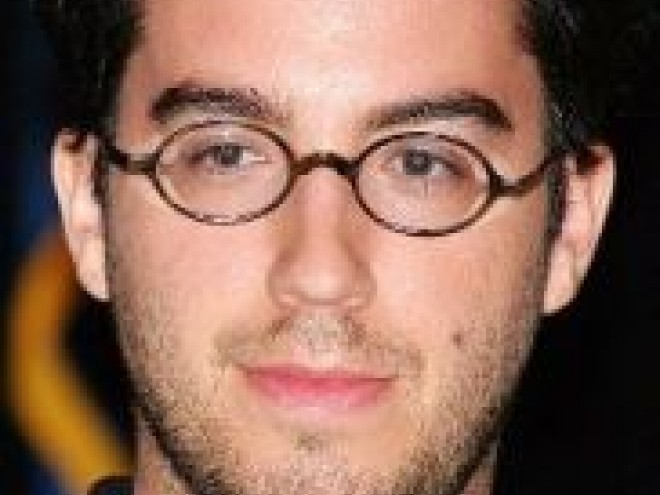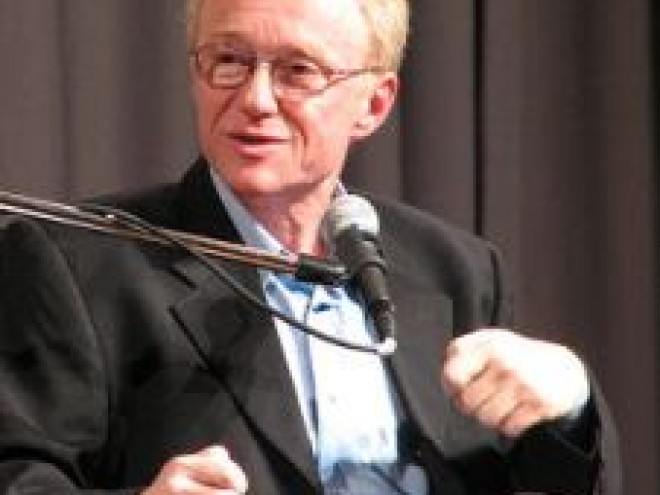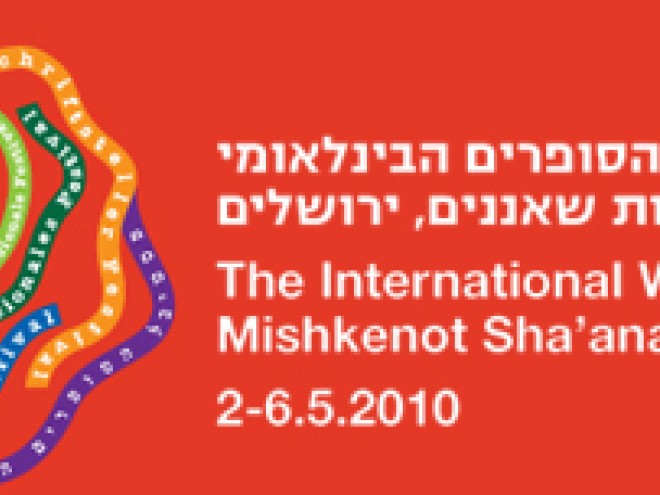Bob Goldfarb has been blogging all week at the Writers’ Festival at Mishkenot Sha’ananim.
 More than a generation separates novelist Nicole Krauss, 36, from Aharon Appelfeld, who was born in 1932. The author of The History of Love was born in the comfort and security of America, while the Israeli man of letters spent his childhood hiding from the Nazis among criminals. Yet they feel a deep admiration for each other, and not just for their writing, as their public conversation on the last night of the Writers’ Festival made clear.
More than a generation separates novelist Nicole Krauss, 36, from Aharon Appelfeld, who was born in 1932. The author of The History of Love was born in the comfort and security of America, while the Israeli man of letters spent his childhood hiding from the Nazis among criminals. Yet they feel a deep admiration for each other, and not just for their writing, as their public conversation on the last night of the Writers’ Festival made clear.
“We are used to American writers writing only about America,” remarked the Israeli. Krauss’s The History Love unfolds in Eastern Europe and Chile as well as Brooklyn. “So you can see Nicole is a very Jewish writer. Why are you a Jewish writer?” he asked her.
Krauss explained, “When I was young it didn’t interest me to be Jewish. The community wasn’t inspiring, it was not interested in the larger world. At Oxford, where I was a graduate student, I felt out of my depth, but I felt an affinity with other Jews, whether I liked them or not. There was a shared understanding.
“When I started the process of writing novels, I started to find out who I was,” she continued. “I hit this rock of being Jewish. It’s so profoundly rich, with endless questions. It’s something that could last for a lifetime to understand.”
“I come from a very assimilated Jewish family,” commented Appelfeld. “So assimilation is part of me. My parents didn’t want to hear about Jewishness – it was an anachronism in our home. My grandparents in the Carpathians were still believers. We used to come to them in vacations — farmers, working in the fields, coming home, sitting silently, praying silently.”
Krauss declared, “As a writer sometimes I feel I’m free, I don’t have to be responsible to anything. Now I’ll hear your voice echoing if I write something not Jewish.” The older author replied, “You speak of freedom. Yes, every writer is a free man, but he has a family, and a tribe, and he is not so free. And grandparents and uncles, and they are part of his memory. I’ve lost my parents, grandparents. But they are still with you.”
“I have another question,” said Krauss. “I once heard one of my favorite directors, Krzysztof Kieslowski, speaking after fall of Communism. He didn’t want to make films any more, he wanted to quit. Under Communism he had a direct communication with the audience, they understood the symbols, every gesture. In Israel you have an audience that understands your subtext, the secrets within the language. I wonder what it’s like to write for an audience like that?”
“When I came to Israel,” Appelfeld recalled, “I didn’t speak Hebrew. I began at the kibbutz, working in the field, learning Hebrew. I wanted to create a home, a space for me, so I began to write. When I was 26 I came to a publisher with a collection of short stories about my coming to Israel, being alien in this hot country, about not understanding what it is, about the longing to go back to the forests, even to the ghetto. A publisher looked at me – you want to publish these decadent stories? What kind of fantasies are these? You should write about real life — kibbutz, army, not about people who have lost their homes.”
“In the 1950s socialist realism was very strong. It was a very ideological country. You served the country, so you should write socialist realism, not about your experience. Individuality was not a value. But literature is individuality.” Earlier in the conversation Nicole Krauss had referred to her forthcoming novel, Great House, and to the kinds of Jewish questions that most interest her: “What holds us together? Who we are? With a tremendous sense of loss, how does one seize life, decide to go on living? To begin again, to create where there is nothing?”
Aharon Appelfeld, for his part, looked back to his early years and the impressions he retains of that world. “I absorbed them in the deepest way when I was a child. I think the eye of a child is the real eye of the writer. When I think I still have something of a childish eye I am happy.”
Bob Goldfarb is president of the Center for Jewish Culture and Creativity in Jerusalem and Los Angeles. He also blogs for the Los Angeles Jewish Journal.
Bob Goldfarb is President Emeritus of Jewish Creativity International.


